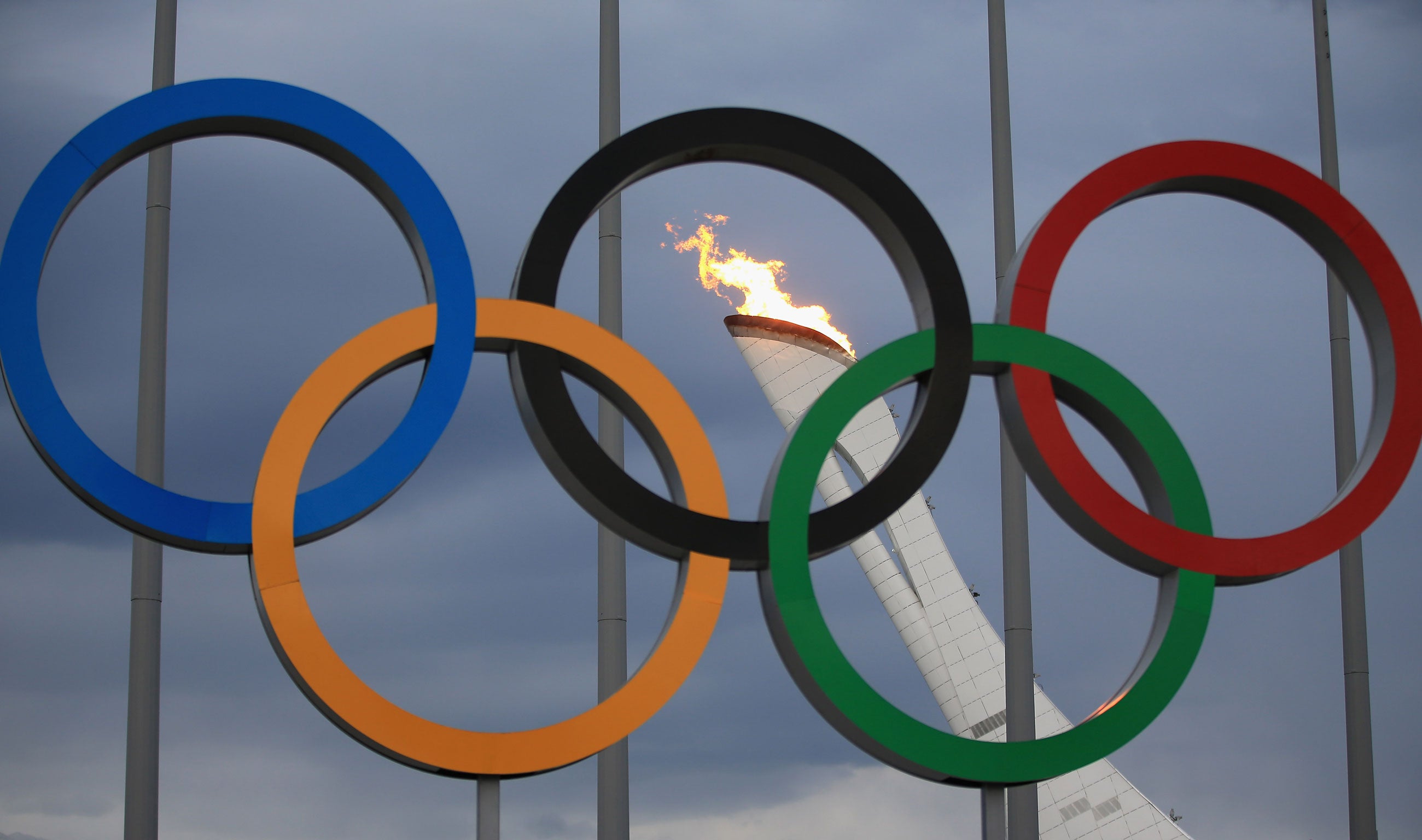Olympic TV channel will help get kids hooked - on burgers and pop
IOC is looking quite seriously at a dedicated year-round TV channel

The Olympics, to amend ever so slightly the old line about buses, are like a Hammersmith & City line Tube train. You wait four years, and then one comes along.
In the wake of their departure (the Olympics, that is) there is always a clamour for more, and a wonder why we always have to wait four years to enjoy rowing and cycling and swimming and canoe slalom and all the rest of it. Until, that is, the football starts again and all is instantly forgotten, borne down in the usual frantic torrent of diving and cheating and racism and drink-driving and the endless, endless complaining about the referees, and normality returns.
The International Olympic Committee knows this reality well. It knows that part of the magic of the event is that, for the most part, the champions are extraordinary but nevertheless ordinary individuals, who have taken probably the only great chance they might ever get.
So it is an interesting gamble that the IOC is looking quite seriously at a dedicated year-round TV channel, at a cost of some £400m, to fill the aching yearning for taekwondo, dressage and the modern pentathlon in those long barren years between Olympiads.
The outlay, spread over seven years, represents almost two-thirds of the IOC’s current reserves, but it knows the stakes are high. The Olympic audience is ageing. The kids are simply not tuning in, and when, as the IOC knows, the viability of your existence is based chiefly on how much Coke and McDonald’s you can shift, you’ve got a problem.
Near sacrilege though it might be, it is possible to point the finger of blame at London 2012. In 2003, when London was trying to work out what marketing strategy might win it the Games, it noticed then the same concerns the IOC currently has – dwindling TV audiences among the young. Seb Coe’s plan to “Inspire A Generation” (not that it was his plan to begin with) was never conceived as a quest to get the nation’s kids off the sofa. It was to tell a panicking bunch of sports administrators what they wanted to hear: that London would be all about the kids, that while it would make vague promises about raising an army of teenagers to beat their Xbox controllers into javelins, what it would actually do is glue the world back to its sofas to have junk food sold to it.
This is the great Aristotelian fatal flaw of the modern Olympic movement – its building-up of modern-day Greek gods, its beatification of athletic perfection, but all of it funded by telly, cheeseburgers and fizzy pop. To fall in love with the Olympian ideal you must expose yourself to yet more high-calorie messaging.
The IOC is rightly concerned for its future, which as someone may have once sung, will inevitably have something to do with children. But it knows very well that its future depends far more on children watching sport than on actually doing it themselves.
Savage solution to the cheeky chappy problem
When it comes to arbitrary dislike of seemingly random people off the telly, the universal constant of Dale Winton notwithstanding, we each have our idiosyncrasies that appear to be beyond our control.
What Graham Norton does for some, Robert Peston or Simon Schama does for others. The most shocking and specific vitriol I have ever encountered belonged, and indeed still belongs, to someone I used to live with who shall remain nameless (I tend to call her Mum), who would be moved to fits of instant apoplexy at the first sight of the waggling hands of the sign language person in the bottom corner of the screen.
Deaf people, I once dared to suggest, should be able to watch the telly too, but in the new Age of Savage in which we now live, her counter was instructive: “I don’t get why you can’t just switch him off? There’s about 10,000 channels on here. Can’t they just have all these channels somewhere else, with him in the corner all the time?”
Just switch him off. What a novel thought. For every person who spends their weekends in a quiet rage at having every last millisecond of our football-consuming enjoyment colonised by the brainless platitudes of Robbie Savage, why can’t we just switch him off?
Unfortunately, audience focus groups continually return favourable reports for Savage’s unique line in wearisomely laddish nonsense, so someone must like him, and they can switch him back on again.
One thing we have learnt beyond doubt over the last couple of weeks is that football broadcasters have a lot of cash sloshing about. There’s no reason why a Savage and Savageless production can’t be broadcast simultaneously. “All square here at half-time here at the Emirates, and if you want to hear some actual discussion of the match then stick with us, but if 15 minutes of listening to Michael Owen getting bantered to death over his questionable tie and cardy combo, press the Sav button now.”
We’re told his work ethic is not to be questioned. There’s no reason why you couldn’t have a babbling Savage in the corner of every show, piling in with his cheeky chappy opinions.
University Challenge would be a great place to start. But for those of us disinclined to do so, the power to switch off Sav is the next TV sports revolution we are crying out for.
Join our commenting forum
Join thought-provoking conversations, follow other Independent readers and see their replies
Comments
Bookmark popover
Removed from bookmarks